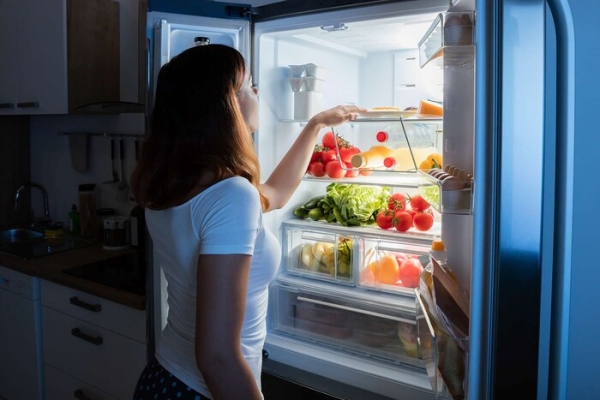
Tips for the public on food storage and consumption in the event of a power outage
In the conditions of a full-scale war and Russia’s armed aggression in Ukraine, as a result of the destruction of the Ukrainian energy system, fan and emergency power outages are carried out. So the question of how to store food products, food raw materials in such conditions at home, as well as at their production and circulation facilities (at food processing enterprises, public catering establishments, wholesale and retail food trade enterprises) has become more relevant than ever.
Taking into account the recommendations of the Ministry of Health of Ukraine, in order to prevent complications of the epidemic situation in the region related to the consumption of food products, which may be dangerous due to violation of the temperature conditions of their storage, the Main Department of the State Production and Consumer Service in Lviv region suggests following recommendations.
For safe storage of perishable food products, the temperature in the refrigerator should be +4°C or lower, in the freezer – no higher than -4°C. For this, refrigerators should be equipped with thermometers to control the storage temperature regime.
In the event of a power cut, the refrigerator and freezer doors must be kept closed to prevent warm air from entering, because in this case the products remain safe for up to 4 hours in the refrigerator, 48 hours in the full freezer, 24 hours in the half-empty freezer. In the event of a power outage for more than 4 hours. it is necessary to place containers with frozen water in the refrigerator, which will help to keep the cold. If possible, it is necessary to purchase dry or block ice. Block ice should be stored in the freezer for later use in the refrigerator.
Perishable food products can be stored in a thermal container (thermal bags) with cooling elements, as well as on a balcony at sub-zero temperatures, in a cellar or basement in closed spaces to prevent rodents from accessing them.
Food that has been stored without proper temperature conditions should not be tasted to check its quality and safety. If there are doubts about the safety of food (unusual smell, color, consistency, texture), it is better to throw it away.
Perishable products that have been refrigerated above 15 °C for 4 hours or more (eg meat, poultry, seafood, milk) are not eligible for further sale. It is possible to prepare meals from frozen food that still contains ice crystals or is at a temperature of 4 degrees or below. It is prohibited to re-freeze thawed food products.
It is recommended to prepare dishes in small quantities so that they can be consumed on the day of preparation and not left in the refrigerator for the next day. It is not recommended to leave for the next day salads, vinaigrettes, pâtés, cold cuts, fillings, pureed soups, milk soups, sauces, pancakes with meat, sour milk cheese, chopped meat products, poultry, fish, mashed potatoes, boiled pasta. Chilled dishes that have been stored under appropriate temperature conditions should be consumed only after repeated heat treatment (boiling, frying on the stove, in the oven).
It is not recommended to stockpile perishable food products. You should stock only those food products that do not require special storage temperature conditions (cereals, canned goods, etc.) or lose the least quality without a refrigerator (milk for long-term storage in tetrapacks, raw smoked sausages).
Market operators for the production and circulation of food products in order to ensure compliance with the temperature regime during the storage of food products, food raw materials, need to take care of alternative means of electricity in advance. If possible, purchase gasoline or diesel generators, solar (accumulator) batteries, portable power plants, etc., and also, if possible, adapt the work of the enterprise to the schedules of fan and emergency power outages. In the case of a long-term absence of electricity supply, it is necessary to transport perishable food products to warehouses – refrigerators or to nearby settlements where there is an electricity supply that can ensure the operation of refrigeration and freezing equipment.
The main responsibility for the safety of food products rests with food market operators: producers and economic entities involved in the storage, transportation and circulation of food products.

